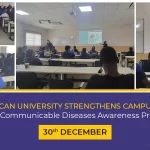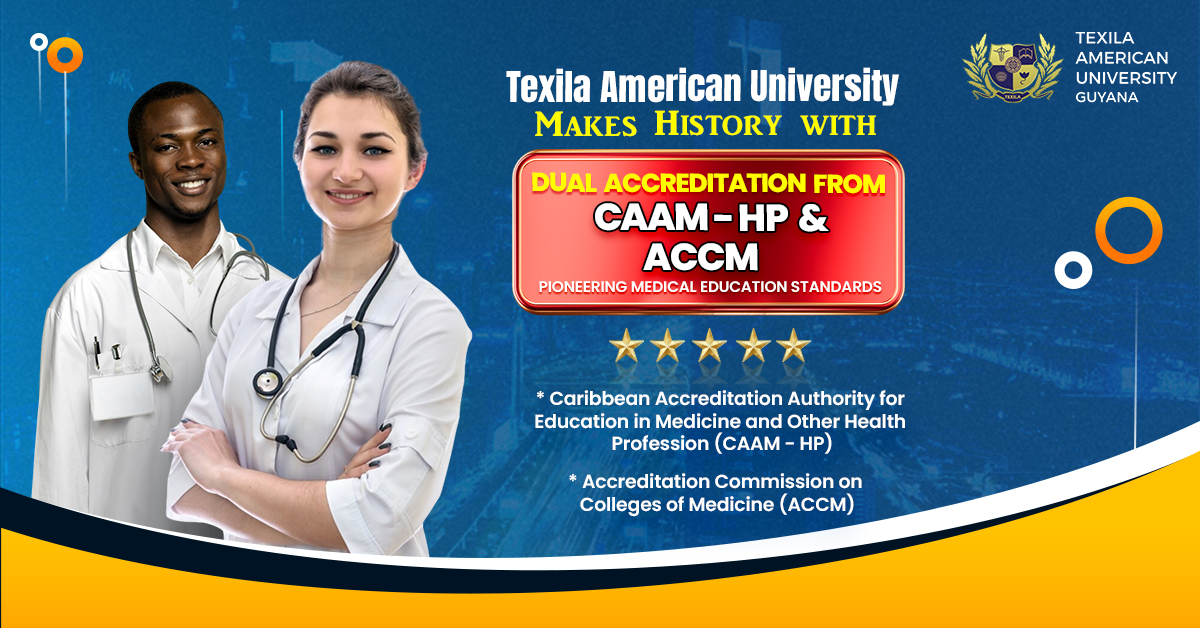Blog Summary
- 1. Focus on Personal Wellness, Not Just Academics
- 2. Master Effective Time Management Strategies
- 3. Build Strong Connections with Peers and Mentors
- 4. Jump Right into Developing Clinical Skills
- 5. Learn to Study Smart, Not Just Hard*
- 6. Do not Be Afraid to Ask for Help When Needed
- 7. Take Thorough, Well-Organized Notes
- 8. Find Ways to Get Hands-On Clinical Exposure
- 9. Have a Game Plan to Manage Test Anxiety
- 10. Trusted in their abilities
- 11. Start researching the residency application process now
- 12. Maintain Human Interaction
- 13. Envision Your Ideal Medical Career
- 14. Believe in Your Potential as a Future Doctor
Starting the MD program is thrilling, intimidating, and challenging. As a wide-eyed first-year student, you likely have many questions about how to make the most of these foundational months. Can you manage the demanding workload? How will you memorize the enormous amount of new material thrown at you? Can you overcome any imposter syndrome and believe in yourself?
Reflecting on their first year, many students who study Medicine in the United States wish they had done certain things differently to prepare for the challenges ahead. Here are the top 14 things Doctor of Medicine students wish they would have done in their first year:
1. Focus on Personal Wellness, Not Just Academics
Medical school is notorious for gruelling schedules, endless studying, and high stress. Many first-years get so absorbed in checking academic boxes that they neglect self-care. Don’t make this mistake! Carve out time every day to prioritize healthy routines. “Make sure to cook, exercise, socialize, and sleep. Do not justify skipping these things to cram more info into your exhausted brain,” urges Matthew, a second year. Staying balanced will help fend off burnout down the road.
2. Master Effective Time Management Strategies
Between classes, group projects, assignments, and labs, your calendar will be jam-packed. “Learn to manage your time well starting on day one. Figure out a system that works best for you,” shares Susanna, now in her third year of the MD program. Experiment with schedules, to-do lists, or apps to stay ahead of deadlines and tasks. Become a productivity pro to make the most of your limited time.
3. Build Strong Connections with Peers and Mentors
Brilliant classmates and professors surround you, so tap into this network! “Don’t just focus on academics in isolation – invest time to meet people,” says Peter, a rising fourth-year Doctor of Medicine student. Attend interest groups, chat up seatmates, grab coffee with faculty, and put yourself out there. Finding supportive mentors and like-minded friends will enrich your MD program experience exponentially.
4. Jump Right into Developing Clinical Skills
The MD program curriculum initially covers a ton of theory, but do not wait until rotations to gain clinical exposure! “Practice your interviewing, physical exam, and other clinical skills as much as possible on real patients. The more exposure you get early on, the better prepared you will be,” notes Priya, now in her final year of studying Doctor of Medicine in the United States. Seek opportunities to shadow physicians, volunteer at clinics, or practice among classmates. These practical experiences will prove invaluable.
5. Learn to Study Smart, Not Just Hard*
Get ready for a relentless stream of information coming your way as a first-year Doctor of Medicine student. “It’s easy to think you have to memorize everything in your stack of textbooks, but that leads to a quick burnout,” says Shilin, who recently finished the third year. Be selective, utilize instructors’ guidance, tap online resources judiciously, and focus on understanding concepts over rote memorization. Studying smart is far more sustainable than just looking hard.
6. Do not Be Afraid to Ask for Help When Needed
Some students are shy about seeking assistance, but do not let pride get in your way! “Remind yourself regularly that no one expects you to know everything on your own,” Zaida, soon entering year four. Attend office hours, form study groups, use tutoring services, and turn to academic advisors or counsellors when you need guidance. You will thrive when you leverage the support around you.
7. Take Thorough, Well-Organized Notes
You will suffer information overload in lectures and seminars, so solid note-taking skills are essential, according to fifth-year Doctor of Medicine student Jamal. “Figure out which style works best for you, focus on key concepts, and review your notes soon after class,” he emphasizes. Invest time to craft summary sheets, mind maps, flashcards, or other tools to reinforce retention. Detailed, organized notes will serve as invaluable references.
8. Find Ways to Get Hands-On Clinical Exposure
You can only learn so much about studying Doctor of Medicine from textbooks. That is why Suvi, now in year five, says, “Find opportunities to apply your knowledge through direct patient interactions, whether volunteering at a clinic, shadowing physicians, or taking on internships.” Look for these hands-on chances starting early, even if not required. Real-world experience will prove invaluable for your skills and motivation.
9. Have a Game Plan to Manage Test Anxiety
Let us face it – the MD program involves a ton of high-stakes exams, which understandably produce anxiety. Fortunately, you can get out ahead of potential stress. “Practice relaxation techniques like deep breathing, maintain healthy routines around test times, and use counselling resources if needed,” advises fourth-year Doctor of Medicine student Joseph. Managing stress will help you demonstrate your true abilities when it matters most.
10. Trusted in their abilities
Many outstanding students make the mistake of underestimating themselves. Have confidence in yourself – you were accepted for a reason! Students emphasize believing in your abilities rather than comparing yourself to others. Stay positive, be proactive, and know you have what it takes to succeed in your MD program.
11. Start researching the residency application process now
The residency match shapes your career trajectory, so get familiar with timelines, requirements, research opportunities in desired specialities, and other vital details. Speaking with faculty and residents can provide invaluable insights. You do not want to be scrambling to check boxes for residency apps during the fourth year of studying Medicine in USA.
12. Maintain Human Interaction
Do not become a hermit. It is tempting to spend all your time in the library or study lounge but avoid social isolation. Join school clubs, hang out with classmates, visit museums and concerts, try new restaurants – whatever interests you. Maintaining fun activities and human connections outside of studying for a Doctor of Medicine is essential for perspective.
13. Envision Your Ideal Medical Career
Use the first year to reflect on your interests, skills, values and priorities regarding your future medical career. Do you want to help underserved communities? Conduct research? Work with children? There are so many possibilities and exploring them now will help steer you toward a meaningful path in your Doctor of Medicine journey.
14. Believe in Your Potential as a Future Doctor
Making it through the first year of the MD program is no easy feat, but keeping these tips in mind can help you better manage the transition. Remember to focus on your well-being, master essential skills, seek assistance, and believe in your potential.
Final Words
These steps will set you up for a productive and rewarding journey as a future Doctor of Medicine. You have got this!
If you plan to Study Medicine in the USA, prepare yourself by learning from others’ experiences. Read more, learn more and make sure to follow a practical approach.












